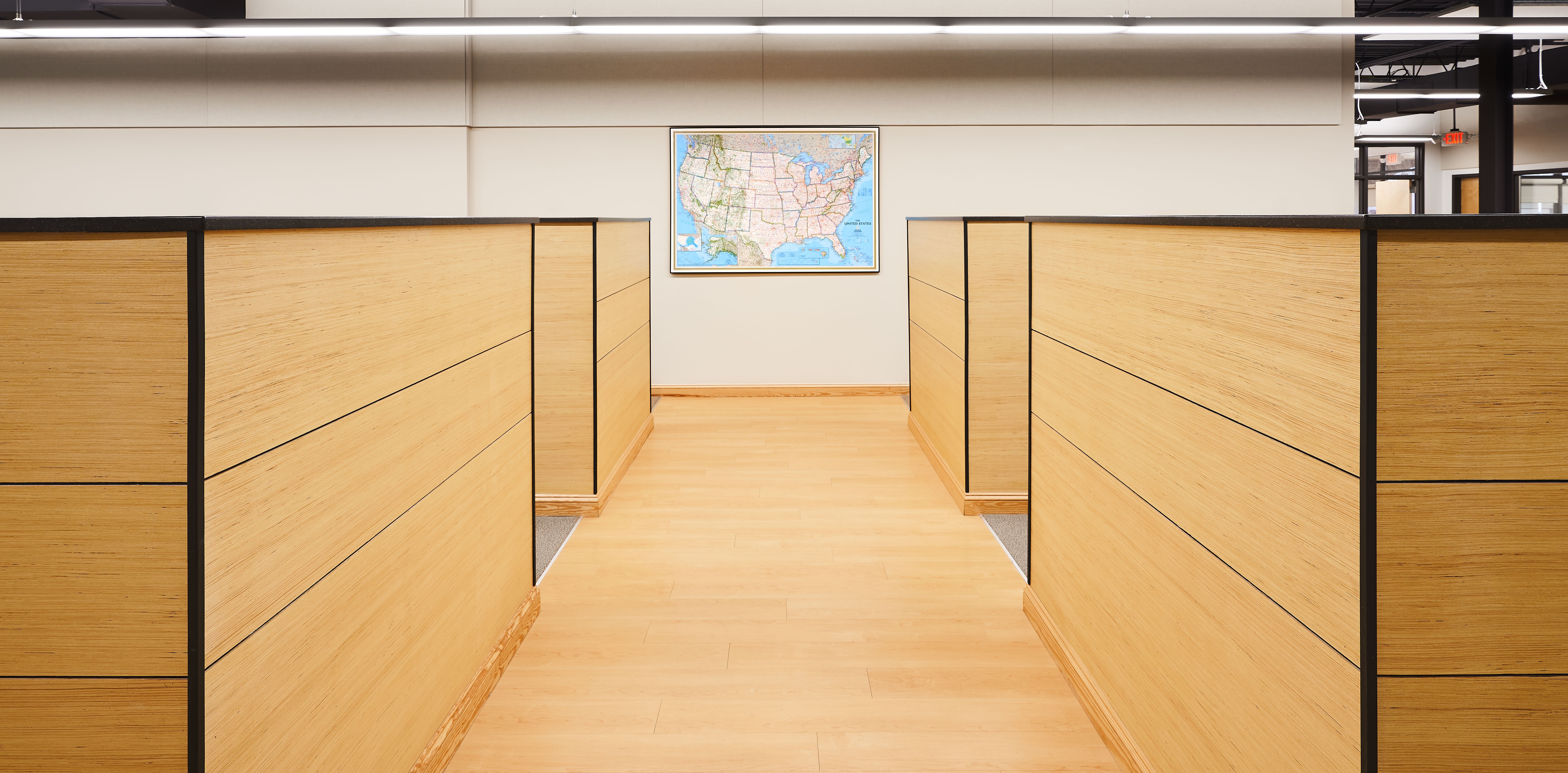Lauan Plywood - The Evolution of RevolutionPly ®
Why one Man's Lauan is Not Another Man's Luan
Our past experience as a Lauan plywood supplier provided Patriot Timber Products with the motivation and knowledge to develop the RevolutionPly® panel—a viable, long-term alternative to Lauan plywood that is better than Lauan plywood.
To understand why we say RevolutionPly® plywood is a better alternative to Lauan plywood (often spelled Luan), it is important to understand what is Lauan plywood and what is the origin of Lauan plywood.
Lauan plywood (also known as Luan Plywood) is a commercial term used throughout the United States that typically refers to a 1/8" - 1/4" tropical hardwood plywood panel used for underlayment in flooring, lamination, paper overlay, furniture, and millwork applications.
The first Lauan panels were manufactured over 40 years ago in Japan, Korea, and Taiwan. The hardwood plywood industries in these three countries imported vast quantities of tropical hardwood logs from the Philippines, Indonesia, and Malaysia. The primary species they used was Shorea spp. which was commonly known in the Philippines as "Lauan" - hence the name Lauan Plywood. Shorea spp. is the same species that we know in the United States as Philippine mahogany and more recently as Meranti plywood.
Get the AnswersTo Your Lauan Plywood Questions Here.
The Asian plywood industries favored using Lauan for the manufacture of hardwood plywood. It was prevalent throughout Southeast Asia; the logs were clean and straight; the wood fiber was stable; it was easy to peel, and it was consistent in density and color.
As the worldwide demand for hardwood plywood grew, these same countries that were the source of the logs for Lauan panels developed their own plywood industries. By the 1990s, Indonesia was the largest hardwood plywood manufacturer in the world with over 100 plywood factories and an annual production of almost ten million cubic meters or about 300,000 tractor-trailer loads of plywood.
Practically every country in the world was using Lauan plywood that originated from Indonesia, Malaysia, or the Philippines.
Sadly, the tropical hardwood trees used to make Lauan plywood were not sustainably managed. In twenty short years, the hardwood plywood production from these same source countries plummeted due to overharvesting and lack of raw material. The Philippine plywood industry is, for all intents and purposes, finished. The Indonesian plywood industry is less than one tenth of its peak size. The Malaysian plywood industry is steadily declining.
The Lauan plywood available in the market today hardly resembles the Lauan plywood of twenty years ago. Plywood manufacturers around the globe use tropical hardwood logs from a wide range of sources including Africa, the South Pacific, Southeast Asia, and South America. Most of these tropical hardwood sources are not being managed for sustainable development. The available pool of tropical hardwood logs to make Lauan plywood continues to get smaller and smaller. Lauan plywood varies in appearance from shipment to shipment.
RevolutionPly® plywood is a fresh departure from the tradition of using tropical hardwoods to make a Lauan-type panel. RevolutionPly® plywood contains no tropical hardwoods. Every RevolutionPly® panel is made from plantation and sustainable woods and is consistent from sheet to sheet in appearance.
RevolutionPly® plywood is better than Lauan plywood because, for the first time in the history of the plywood industry, there is a sustainable, long-term alternative to Lauan that is better for our global environment and a far better use of the Earth's forest resources.
RevolutionPly® panels are protected by one or more issued and pending US and foreign patents, which may include U.S. Patent Nos. 8,414,996 and 9,242,391.












